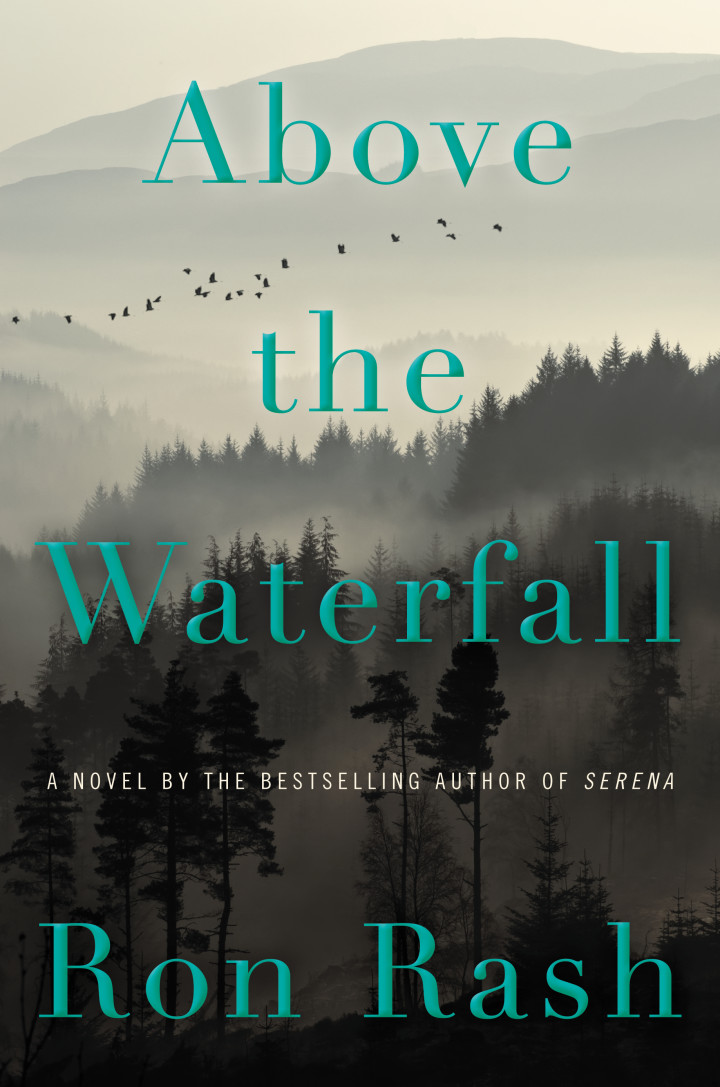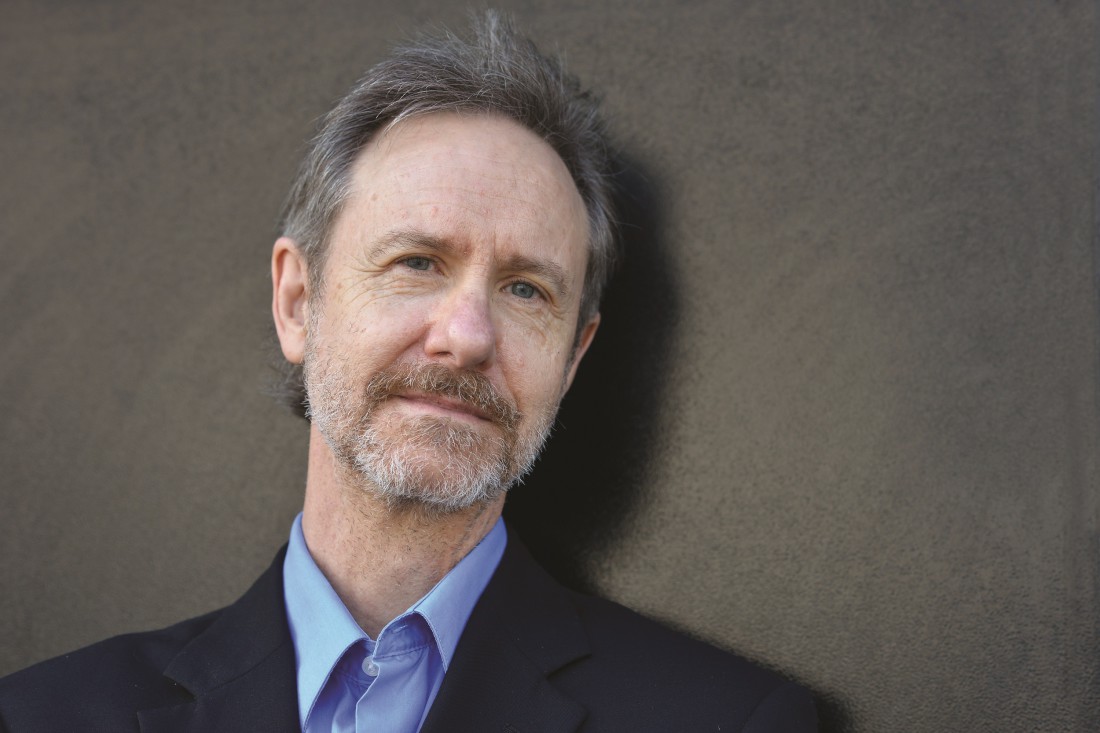This sentence appears in the preface to Above the Waterfall, the newest novel by Ron Rash: “I watch last light lift off level land.” It’s just one of thousands of slight, deftly crafted lines. But there, before the story even begins, Rash slows the pace and announces himself — not just as a craftsman of rich, dark Southern fiction but also as a poet. He’ll present the novel at Malaprop’s Tuesday, Sept. 8.
Less than a year ago, Rash mentioned the novel to Xpress while he was finalizing a late draft. “I like to do a lot of edits,” he says. “On this one, I did about 18. It needed it.” In fact, the local author reveals, for a long time the manuscript wasn’t working. What turned it around was emphasizing the language of Becky, a park ranger who harbors both personal tragedy and a deep connection to nature. Becky’s insights come in crisp, minimal phrases as well as in poems and sketches.
“I guess what I’m proudest of in the book is her voice,” says Rash. “That attempt to create a voice that is poetic, but also a voice that sees things on a level that most people normally can’t.” Becky is friends (and tentatively more) with Les, the local sheriff on the verge of retirement. If the two seem oddly matched, they share a symmetry in their brevity. Both mistrust words, which they believe harmed someone close to them. Both are deeply troubled, though good at heart. Their strong loyalties and unique perceptions land them on opposite sides of a conflict when property is trespassed upon and a trout stream is poisoned.
 Still, Rash calls it his most optimistic book to date. “That’s not raising bar too high,” he jokes. “But hope and goodness win out for once. I’m not flinching from reality, certainly, but almost everybody in the book is a decent human being doing the best they can.” Fans of Rash’s work will recall the steely anti-heroine of Serena; the haunted, feuding families of The World Made Straight; and the many storylines of Nothing Gold Can Stay, in which the characters experience generations of gorgeous mountain landscapes side by side with harrowing violence.
Still, Rash calls it his most optimistic book to date. “That’s not raising bar too high,” he jokes. “But hope and goodness win out for once. I’m not flinching from reality, certainly, but almost everybody in the book is a decent human being doing the best they can.” Fans of Rash’s work will recall the steely anti-heroine of Serena; the haunted, feuding families of The World Made Straight; and the many storylines of Nothing Gold Can Stay, in which the characters experience generations of gorgeous mountain landscapes side by side with harrowing violence.
Above the Waterfall contains less bloodshed, but Becky is tormented by news reports of school shootings, and Les is routinely called to arrest methamphetamine abusers. While Rash says this will probably be the last time he writes about meth, “in nonfiction it’s underreported.” The author doesn’t want to sensationalize the drug problem that plagues the Western North Carolina mountains, so “each time I’ve written about it, my emphasis has been on the children and parents, the people around [the drug users],” he says. His attention is on the universality of loss and suffering.
Rash does have new work in process — he writes at least six days per week, even while teaching at Western Carolina University, where he is the John Parris Distinguished Professor of Appalachian Studies — but he’s most excited about publishing giant HarperCollins putting out a book of his collected poetry next April. Rash has released a number of poetry collections through small presses, but he suspects most readers of his fiction don’t realize he’s also a poet.
Then again, the author’s career has been a slow burn. He was in his 40s by the time he was published beyond literary magazines. His first book was the short-story collection, The Night The New Jesus Fell to Earth. “I really believe it’s the best thing that could have happened to me … because I was able to concentrate solely on the writing,” says Rash. “There were no distractions because no one was interested. I just went slowly and surely about my craft.”
He adds, “What interest in my craft has come has been very slowly building. Someone recently said, ‘You’ve really broken through.’ I said, ‘It only took 17 books.’ I’m not an overnight sensation.” In his 20s, Rash asked himself if he’d rather live his life wondering if he could have committed to writing or risk spending years honing his art form only to learn he didn’t have the talent. His choice is apparent. Above the Waterfall, with its quiet intensity and natural beauty juxtaposed against human ugliness, is the work of a writer who’s found his way with words.
“The work itself is what matters. That’s where the focus needs to be, not on self-promotion,” Rash says, a sentiment he likely shares with his students. “You hope — and I do believe this — that if the work is good enough, eventually somebody will notice.”
WHO: Ron Rash
WHERE: Malaprop’s, malaprops.com
WHEN: Tuesday, Sept. 8, 7 p.m.




Before you comment
The comments section is here to provide a platform for civil dialogue on the issues we face together as a local community. Xpress is committed to offering this platform for all voices, but when the tone of the discussion gets nasty or strays off topic, we believe many people choose not to participate. Xpress editors are determined to moderate comments to ensure a constructive interchange is maintained. All comments judged not to be in keeping with the spirit of civil discourse will be removed and repeat violators will be banned. See here for our terms of service. Thank you for being part of this effort to promote respectful discussion.